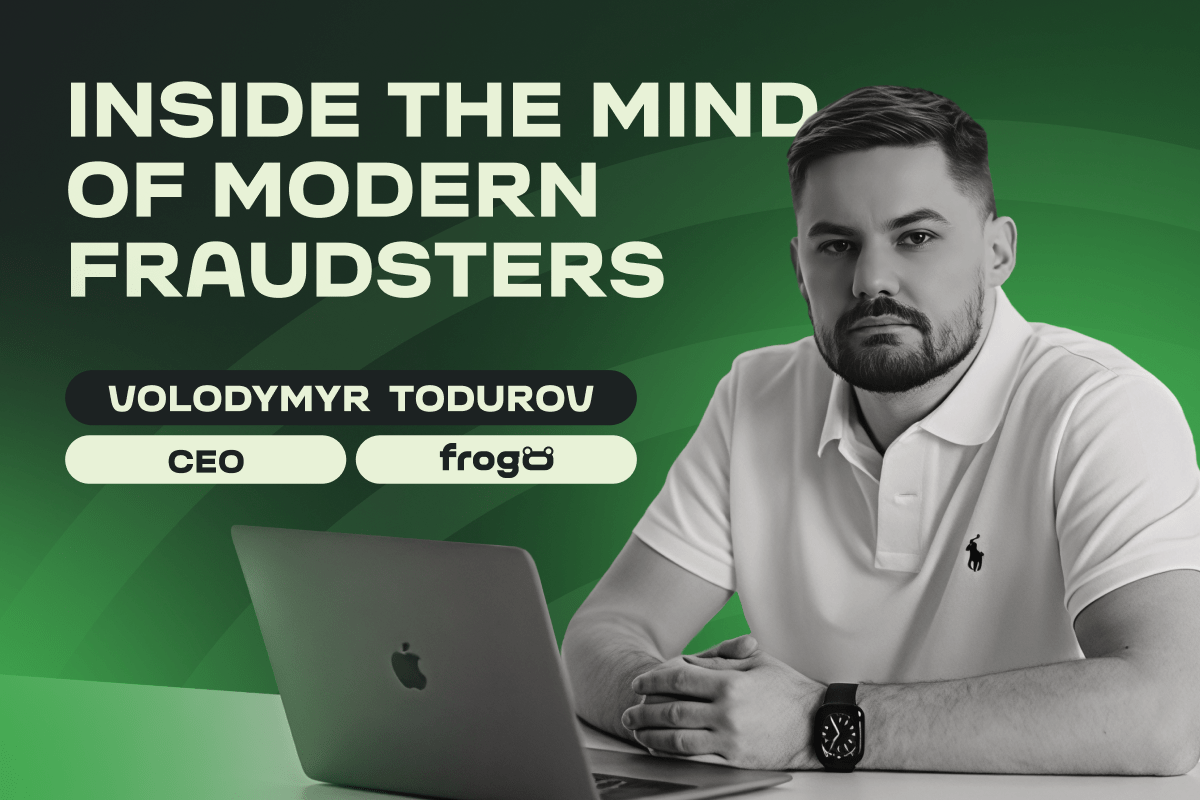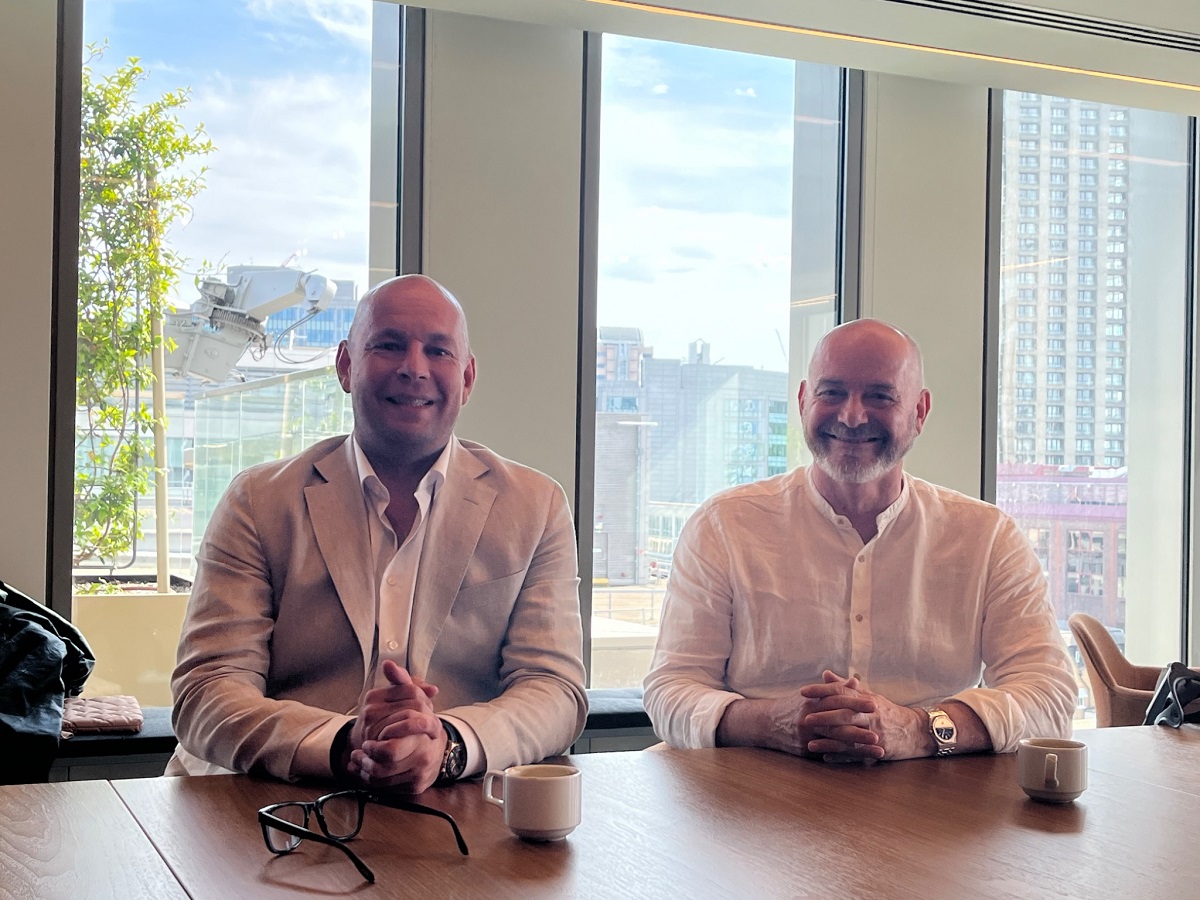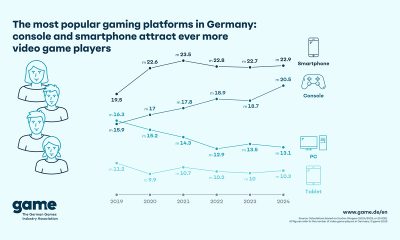Interviews
Exclusive Q&A with Jeton Kodia Co-Founder at Oddspedia

Let’s start with a few words about yourself. Our readers love top executives talking about themselves.
My name is Jeton Kodia and I have been in the gambling business since 2009. I became an iGaming affiliate when I turned my hobby into my profession. Gambling is part of my life – I love betting, casino games, and poker. Additionally, with my first name Jeton, it was somehow destiny that I had to step into this industry. I am addicted to football, and I had to lose quite some bets on my favorite team until I learned that when you want to take betting seriously, you need to refrain from your emotional attachment to a particular team and turn your attention more to comparing the odds. Besides football and pro sports in general, I bet on pretty much anything with my friends. This ranges from prop bets about winning at Playstation games to whether my first child will be a boy or girl. There is always something going on in my life which we can bet on.
Now on to Oddspedia. What led to the founding of Oddspedia?
As I already hinted at before, I wanted to focus more on the odds at sports betting. Therefore, I teamed up with Jan, whom I know since we were 18 years old, and who is equally passionate for sports in general and football in particular. Together, we co-founded our company and website Oddspedia. The main goal of our company is to provide valuable, competitive and user-friendly services for sports betting fans, players and publishers. Since its inception and over the course of several years, Oddspedia established itself as one of the biggest international affiliates in the sports betting world.
Could you elaborate on the cutting edge that Oddspedia possesses? There are other companies that offer similar services. What makes Oddspedia “the number one sports companion” of punters?
The website aims to provide as much value to the user as possible, and the information is conveyed in a manner to ensure a great user experience. It starts with guaranteeing a reliable odds comparison – odds on Oddspedia are being scanned in real-time across more than eighty bookmakers to ensure that only the most up-to-date data is displayed. This is complemented by features not commonly found in competing websites, such as geolocation to show only relevant betting sites for the user, direct links to bookmakers’ betslips, full odds movement history and various betting tools. This is part of what makes Oddspedia one of the best sites for odds comparison. But as a matter of fact Oddspedia offers much more than that. The website has amazing sports coverage as well, providing livescore information on more than 30 different sports. Users can also explore sports statistics, bonuses and promotions, or read the latest news on their favourite leagues, teams and matches. All of this wrapped in an app-like web experience, with quick performance and a state-of-art modern design makes it easy for Oddspedia to stand out from its competitors.
You recently overhauled the Oddspedia website. What are the new features that have become user favorites?
In August Oddspedia had the biggest makeover yet with its relaunch. The new version was in development for more than a year, and enabled the development team to apply new tools and technical innovations that were simply not possible on the old site. Major front-end and back-end changes were done to improve the user experience, and the new UI provides much more natural and polished user flow. To ensure seamless operation, updates regarding back-end software, systems, processing odds nodes, and new integrations are introduced almost on a day-to-day basis.
You have also launched widgets for webmasters and digital publishers which help them monetize their website through affiliate marketing? Tell us more about the widgets and process of monetizing.
One of the main issues from editors, publishers and affiliates is providing real time data to their customers. Is extremely hard to find a proper way to do it. The Oddspedia Widgets fill the gap between the sports data feeds and the operators.
For editors, the Oddspedia Widgets have been developed as a real “all-in one” solution. These tools can be implemented into any site by simply pasting their code, providing that site’s users with real time odds data. Publishers can benefit from the live information by not only providing their users an odds comparison widget for free, but they can include their affiliate link to the respective bookmaker. Clicks are simply shared on a 50/50 basis. The way the split works is that the widgets rotate with two links, one for the publisher and the other for Oddspedia which will be applied with equal chance.
Publishers will get real time sports data without any cost for them, at same time they offer that to their customers and readers.
The Covid-19 pandemic has affected the betting and gambling companies, especially the traditional forms of betting and gambling. It is not yet done yet. How have the lock-down and social distancing measures affected your business?
In every crisis there’s an opportunity. The coronavirus outbreak has had a devastating impact all over the world and on our daily lives, with many businesses in almost every industry feeling the pinch. That’s no different with the gambling industry, as most major sports were suspended in the first lockdown during spring time.
At Oddspedia we expected that the interest in sports will even grow bigger in times of social distancing and isolation. But with the vast majority of sports canceled we had to find a way to react to the situation. We focused on increasing our sports portfolio and cover almost any event going on worldwide. As crazy as it sounds, the matches from a Table Tennis tournament in Russia were checked over a million times on Oddspedia.
There are still positives that can emerge from the pandemic, with virtual sports and esports being one of them. Virtual Sports truly boomed in interest. Esports betting is a vertical in the industry that was already rising in popularity before the outbreak. But now, it’s well on its way to establish itself as a major offering for operators and affiliates, which is set to continue even after we come out the other side of virus lockdowns.
It has been seven years since Oddspedia was launched. Most of these times, you focused mainly on Europe, especially the German-speaking countries. You are now venturing in to South America. How has the user response so far from the Latin American countries, who certainly love their football? Any plans to start operations in Asia?
Our entry into the South American market has been very successful. The audience there is extremely passionate about sports and betting, and they show a great demand for our product. Of course, we provide local users with well-targeted information from local bookies in their native language. We began with the integration of Spanish and Portuguese languages for our product, then we structured our content to be as engaging as possible for local users. It’s no secret, that for users from Brazil, as well as for other Latin American countries, football is the most popular sport. So when entering our website, we meet users with the most interesting football matches from their local leagues. These are shown first and then followed by popular worldwide championships.
This personalized approach is very successful and we have good and stable traffic coming from these countries
Several Asian countries, like Japan for example, are very interesting for oddspedia, as well. However, we deem it highly important to find the right partner when entering a country like that. It is crucial to have the right partner who is fond of the language, can translate and adapt to the correct betting terminology, and possesses local SEO knowledge. We envision to grant sublicenses for oddspedia if the right company to partner with comes knocking on our door.
The technology is moving at an unimaginably high speed. How do you think artificial intelligence and machine learning would impact the betting industry, and specifically the odds comparison
Automation based on machine learning has been key within ecommerce for years and the igaming industry should apply insights gained in other sectors. Offering a personal user experience in a responsible environment comes from understanding and catering to each individual player’s needs from an entertainment point of view. AI is a type of software or hardware that learns – and it could be programmed to learn mostly about users and their behavior and utilize those insights to drive the developments of new, hyper-personalised gaming and internet betting experiences. The technology is being applied to learn our habits, our likes, and our relationship patterns. Online gaming is an industry that runs on data, such as results, stakes, percentages, odds, stats, and so on. All of these numbers are constantly crunched, calculated and analysed behind every major gaming platform. For this reason, ML is actually playing a growing influential role in the sector, changing the game for both online gaming businesses and their players
Finally, what would be your key advises to any new entrepreneurs starting something new in the gambling industry or affiliate marketing sector?
Don’t start something just on your own if you are a newbie. First, dip your foot in the water and gain some experience in the industry. I would recommend starting with a job at a bigger affiliate company or in affiliate marketing at an operator. If you are smart, you can learn a lot quickly and avoid a bunch of costly mistakes you might have made otherwise. In the next step, you can try out your own ideas. By then, you already have a sound understanding of the industry, which allows you to make even better products right from the beginning and the timeframe until you are able to realize a return on your investment is likely to be much shorter, as well.
Powered by WPeMatico
Interviews
Portrait of a Fraudster Then and Now: How Scammers’ Habits and Tactics Are Changing

Fraud in the iGaming sector is no longer the work of lone opportunists. Today’s scammers operate in well-organized, tech-savvy networks – quietly exploiting systems that weren’t built to catch them. And as the digital economy grows, so too does the complexity of fraud schemes targeting gaming operators.
Amid this evolving threat landscape, Frogo has emerged as a company redefining how fraud prevention should work. We spoke with Volodymyr Todurov, CEO at Frogo, to get an inside look at how fraudsters are changing their tactics – and what operators can do to stay ahead.
Fraudsters evolve fast – how does your system stay one step ahead without overwhelming teams with false alarms?
Absolutely, the landscape of fraud is constantly shifting and staying ahead requires more than static rules. At Frogo, we’ve developed a dynamic system that adapts in real-time to user behavior and transaction contexts. Our platform learns from both fraudulent and legitimate activities, enabling it to distinguish between the two more effectively. This approach reduces false positives and ensures that our clients’ teams can focus on genuine threats without being bogged down by unnecessary alerts.
Can you walk us through a real-world case where your platform uncovered a fraud scheme traditional tools missed?
Absolutely. One notable case involved a large-scale bot attack targeting SMS-based fraud vectors. Initially, our standard device ID-based defenses helped neutralize the first wave of the attack. However, the adversaries quickly adapted, altering their emulation tactics to bypass traditional checks. At that point, conventional methods were no longer sufficient to detect the evolving fraud.
We responded by implementing a dynamic anomaly detection framework. This involved redefining detection signals in real-time using IP intelligence and deep device fingerprint attributes – areas where our proprietary data collection algorithms provided a significant edge. By anchoring detection logic to more granular and resilient signals, we were able to recalibrate thresholds dynamically, ensuring legitimate users weren’t impacted.
The results were decisive: bot attack efficiency dropped sharply from over 80% to just 3.5%.
What’s something about fraud detection that most businesses get wrong? And how does Frogo challenge that?
A common pitfall we see is operational rigidity – many businesses rely on static rules and general-purpose triggers that result in high false positive rates. This not only burdens anti-fraud teams with unnecessary manual reviews but also degrades the experience for legitimate users, especially loyal or VIP customers.
For example, it’s typical to see blanket rules like “manually verify all payouts over X euros.” While that may seem prudent, in reality it’s inefficient. It overlooks low-value, high-frequency fraud – such as bonus abuse – and disproportionately flags legitimate high-value players.
At Frogo, we take a different approach. Our system adapts rules dynamically based on customer behavior and segmentation. A trusted VIP user with a long-standing reputation shouldn’t be reviewed multiple times a day. But if a wave of new €5 accounts starts exhibiting bonus-hunting behavior, they should run immediate scrutiny – regardless of transaction size.
By aligning detection logic with behavioral context and player reputation, we reduce noise, increase fraud catch rates, and protect real users from unnecessary friction.
How does Frogo automate risk logic without sacrificing the flexibility businesses need to reflect their unique policies and traffic patterns?
At Frogo, we don’t see automation and customization as opposing forces – they operate in different dimensions. Our focus is on automating the customization of risk and scoring policies in a way that respects each client’s specific risk appetite and user behavior.
We achieve this through dynamic triggers. Rather than hardcoding arbitrary rules – like “five failed top-ups per minute equals fraud” – we apply adaptive scoring thresholds that align with real-world usage patterns.. For example, our system might detect that, for a certain payment method and user segment, more than 1.3 failed top-ups per minute is statistically anomalous – because it exceeds the 98th percentile of historical behavior.
But that same trigger adjusts automatically. If the next day a payment provider experiences a technical issue and normal users start retrying more often, the threshold might shift to 2.7. What was anomalous yesterday may no longer be today – and our system adapts accordingly to reflect evolving traffic patterns.
As a result: the clients retain full control over their risk strategy, while Frogo ensures their policies scale efficiently, adapt in real time, and minimize false positives – even in volatile traffic conditions.
Beyond detection – how does Frogo help companies investigate and understand fraud at a strategic level?
Detection is just the beginning. Frogo’s graph-based forensic tools and AI models provide a comprehensive view of the relationships between accounts, transactions and behaviors. This allows companies to identify patterns and vulnerabilities that might not be apparent through traditional analysis. Our analytics layer offers insights into trends and forecasts, enabling businesses to understand the broader context of fraudulent activities and make informed strategic decisions to mitigate future risks.
Fraud might be getting smarter, but so are the solutions built to fight it. Platforms like Frogo are helping operators move beyond reactive security measures and into a space of strategic, data-informed defense. In an industry where trust is everything, that shift might just be the difference between staying one step ahead – or falling behind.
Disclaimer: Frogo’s fraud prevention solutions are developed in full compliance with applicable data protection laws, including GDPR. All behavioural analysis is performed on anonymised or aggregated data, with full transparency and control provided to our clients.
The post Portrait of a Fraudster Then and Now: How Scammers’ Habits and Tactics Are Changing appeared first on European Gaming Industry News.
Interviews
Inside the Matrix: A Conversation with EveryMatrix Founders on Europe, Expansion, and Staying Hands-On

By Maria Emma Arnidou, Event Marketing Director at HIPTHER, for the European Gaming Media
During the recent EveryMatrix Media Day at the company’s opening of their new London office, Co-Founders Ebbe Groes (CEO) and Stian Hornsletten sat down with press to share key insights into their strategic vision. In this exclusive Q&A, we explore their views on the European Market, the evolution of EveryMatrix’s business model, leadership philosophy, and the company’s experience in the ever-evolving U.S. market.
Europe is filled with local heroes. It’s far more fragmented than most people think.
You discussed emerging markets in your presentation. What about Europe – is it considered saturated, or are there still areas of growth?
Ebbe Groes: I really don’t think Europe is saturated at all. In fact, big parts of it are still underdeveloped. Take France for example, it doesn’t allow online casino. Germany has effectively banned it. That’s two of Europe’s three largest economies where casino is either outlawed or nearly impossible. So yes, there is still plenty of room for growth.
Stian Hornsletten: And the market is getting more concentrated around a few bigger players, but even then, it’s not as centralized as in the U.S.
Ebbe Groes: Exactly. Europe is filled with local heroes. You won’t find many players dominating across the board. Kindred, Betsson – they’re strong, but when you go country by country and look at market share, the picture is very fragmented. Even with the economies of scale in marketing – say you sponsor a Premier League team – you’re still not getting the full return unless you’re present across multiple markets. That’s what makes Europe so different from the U.S., where a few big players hold all the cards.
We started with a sportsbook. Now we’re building an ecosystem.
EveryMatrix today operates across multiple verticals with a deeply diversified portfolio. Was this the vision from the start, or did it evolve as the company grew?
Stian Hornsletten: The vision definitely evolved quickly as we grew. We started with OddsMatrix, a B2B sportsbook product that was meant to be an off-the-shelf, managed solution – something that didn’t exist back then. Within a year, we had already expanded into turnkey and PAM solutions. By 2010–2011, we had launched the CasinoEngine and started specializing in product verticals.
We’ve always been very innovation-driven. We keep developing new products – some of which are still under wraps – and R&D remains one of the most exciting parts of what we do. Today, most of our top 10 clients are turnkey. While we still offer standalone modules, our growth has come from cross-vertical synergy.
Despite this scale and complexity, you both remain deeply involved in the company’s day-to-day operations. How do you manage to stay on top of everything across products, people, and processes?
Ebbe Groes: It helps that we’ve been here from the start. I wouldn’t want to be hired into this role now and try to learn everything from scratch – but I’ve had 18 years to absorb it all. We’ve built the company in a way that each vertical operates almost like its own business. For example, the sports division has its own CTO, product team, trading team, and even its own support function. That independence gives us breathing room.
It allows me to focus on high-level strategy, like acquisitions – take FSB, for instance. That required a lot of focus at the start, but eventually it will transition into the core business and require less direct involvement.
Stian Hornsletten: Over the years, we’ve also developed strong planning, reporting, and KPI structures across the business. That consistency makes it easier to monitor everything and integrate new divisions. Whether we open a new office or onboard a new team, we already have the systems in place to support them.
Ebbe Groes: And the same goes for finance and HR. When we opened the London office, the HR team already knew how to handle it – we’d opened three the year before. That kind of maturity allows us to move fast without creating chaos.
“In Europe we have 150 competitors in content; in the U.S., maybe 10.”
And what about the U.S. – a market many see as the holy grail of iGaming? What’s your current position there?
Ebbe Groes: To be honest, the U.S. was a tough lesson. We entered hoping to provide a full turnkey solution, but the market didn’t evolve the way we expected. Many well-funded B2C operators pulled out, and that left little demand for companies like us to offer the full stack. We pivoted to focus on one thing: our own gaming content.
Stian Hornsletten: We’re now live in four out of five regulated U.S. states for our own content, and we have agreements with all the major operators. Some new games from SlotMatrix are set to launch by summer, and they’ve already shown strong performance elsewhere – which gives us hope. If we manage to capture even 1–2% market share with our own content, that would already be meaningful.
But it’s been a long and costly process. Every state has its own regulatory requirements, separate hosting, and certification needs. And if one state’s not ready, operators won’t promote your games nationally. It’s frustrating, but it also reduces competition. In Europe we have 150 competitors in content; in the U.S., maybe 10. So if we can endure, there’s long-term potential.
The post Inside the Matrix: A Conversation with EveryMatrix Founders on Europe, Expansion, and Staying Hands-On appeared first on European Gaming Industry News.
casino
Review Fatigue Is Real: How to Make Casino Comparisons Clear, Honest, and Huma

Sebastian Jarosch is the founder of Mithrillium Media Ltd, and a very famous figure in the iGaming industry. His contributions to the market have been immensely influential. Jarosch has overlooked several projects relating to the online gambling market, most notably those involving affiliates. Because of his past works, we believe he is uniquely qualified to address the topic of Review Fatigue, that seem to be plaguing the industry right now.
Actions speak louder than words. And Jarosch’s actions have earned him several of the most notable industry awards. Among the most notable are the Casinomeister 2020 Awards for Best Casino Group, the AskGamblers Awards for Best Partner in 2021, and the Affpapa Awards Affiliate Programme of the Year 2022.
Interview Questions:
What is “review fatigue,” and why do you think it’s becoming a growing issue in the iGaming space?
Review fatigue happens when players are faced with repetitive, overly long, or generic content. With so many casinos offering similar bonuses, games, and licensing, users quickly lose interest if every review sounds the same. Many reviews lack real insight and simply list features without context, often sounding too good to be true. As a result, players tend to skim or move on entirely, especially if they’ve already seen the same structure and wording on multiple other sites.
How can overly technical or overly promotional content alienate users instead of helping them?
When content is too technical, it can confuse or intimidate newcomers. Ideally content is educational and written with the player in mind. On the flip side, a sales pitch feels dishonest, especially to experienced players who know what to look for. Users are looking for clarity and guidance, not marketing sugar coated casinos. If a review sounds like it’s trying to sell rather than help, it erodes trust immediately. Players want transparency, real pros and cons, not just buzzwords.
What are the most important things players want to see in a casino comparison, and what can we safely leave out?
Players want to know the promotions, payment methods, withdrawal speeds, licensing, game variety, and reliability of a casino. They also care about things like support quality, KYC, ownership, RTPs, and real player feedback. What they don’t want is generic content that could apply to any casino and offers no real value. Sites like Casino-Groups help players pick the right casinos based on individual preferences.
How do you balance clarity with completeness when writing or designing reviews?
It’s all about prioritizing information and guiding the reader. We aim to answer the most important user questions right at the beginning, often using summary tables to make things easier to digest. More detailed information comes later for those who want to dive deeper. It’s important to avoid walls of text and explain complex terms in plain language. The goal is to give users exactly what they need to know, without bombarding them with unnecessary information.
Do players trust shorter, more digestible content more than long-form reviews today? Why or why not
Shorter content tends to convert better because users find what they’re looking for quickly, without digging through long paragraphs full of filler. Dense, meaningful content with no waste often performs best. A short, clear, and well-structured review can build more trust than a long one filled with fluff. That said, some players do enjoy longer reviews, especially when they’re broken up with visuals, clear sections, and genuinely useful insights.
What role does tone of voice play in making reviews feel more human and less “salesy”?
A review should feel like it’s written by a real person who’s an expert in the field, not by ChatGPT or a salesperson. We use conversational language where possible and speak directly to the user. If something’s bad or a bonus is just average, it needs to be mentioned. That kind of honesty builds far more credibility than flashy design or empty buzzwords.
How do you verify and present information (e.g., licensing, terms, payment speed) in a way that’s both accurate and user-friendly?
We manually verify everything by signing up, testing support, and reading the fine print. We also check licenses through official registries and monitor user feedback on watchdog sites. To present the information clearly, we use tables, lists, screenshots, and both internal and external links to relevant pages. All our reviews follow a consistent format so players know what to expect and can easily find the details they need.
Have you experimented with visual elements like comparison tables, badges, or rating meters to reduce cognitive load?
Pictures speak a thousand words and help break up content into smaller, more digestible sections, reducing review fatigue. We use comparison tables for things like bonus terms, game selection, and payment methods. Every review includes a rating, and we apply badges to highlight our top casinos. This makes it easier for users to compare options at a glance and make smarter decisions with less effort.
What strategies do you use to keep review formats consistent while still personalizing the experience for different user types?
We follow a consistent structure that works well for both SEO and conversions. However, if a specific area needs emphasis or additional context, we’re happy to deviate from our standard format to ensure topical completeness. Some casinos offer unique features that deserve extra attention, and in those cases, we’ll add dedicated sections. The framework is consistent, but we stay flexible where it counts.
Looking ahead, how do you think casino reviews will evolve to meet changing user expectations and attention spans?
We’ll see more interactivity, personalization, and smarter use of data. Reviews could adapt in real time based on user preferences, highlighting crypto options for one user and game selection for another. AI chatbots may help users find the best match and answer questions about a casino instantly. Integration with platforms like Discord or Telegram where players can exchange themselves could also make reviews feel more social and trustworthy. Reviews need to become sharper, more authentic, and more genuinely helpful than ever before.
The post Review Fatigue Is Real: How to Make Casino Comparisons Clear, Honest, and Huma appeared first on Gaming and Gambling Industry in the Americas.
-

 Latest News7 days ago
Latest News7 days agoThe Most Popular Gaming Platforms in Germany: Console and Smartphone Attract Ever More Video Game Players
-

 Balkans7 days ago
Balkans7 days agoSYNOT Partners with Efbet in Bulgaria
-

 Australia6 days ago
Australia6 days agoVGCCC: Minors Exposed to Gambling at ALH Venues
-

 Asia7 days ago
Asia7 days agoFIFA, NBA, UFC and More Sports Events Go Live – Crypto Sportsbook BETY Offers Global Sports Betting Coverage 2025
-

 EveryMatrix Press Releases6 days ago
EveryMatrix Press Releases6 days agoSlotMatrix unleashes divine riches in Fortuna Gold where gods rule the reels
-

 Brazil7 days ago
Brazil7 days agoTG Lab unveils new Brazil office to further cement position as market’s most localised platform
-

 Africa6 days ago
Africa6 days agopawaTech strengthens its integrity commitment with membership of the International Betting Integrity Association
-

 Baltics6 days ago
Baltics6 days agoEstonian start-up vows to revolutionise iGaming customer support with AI




















